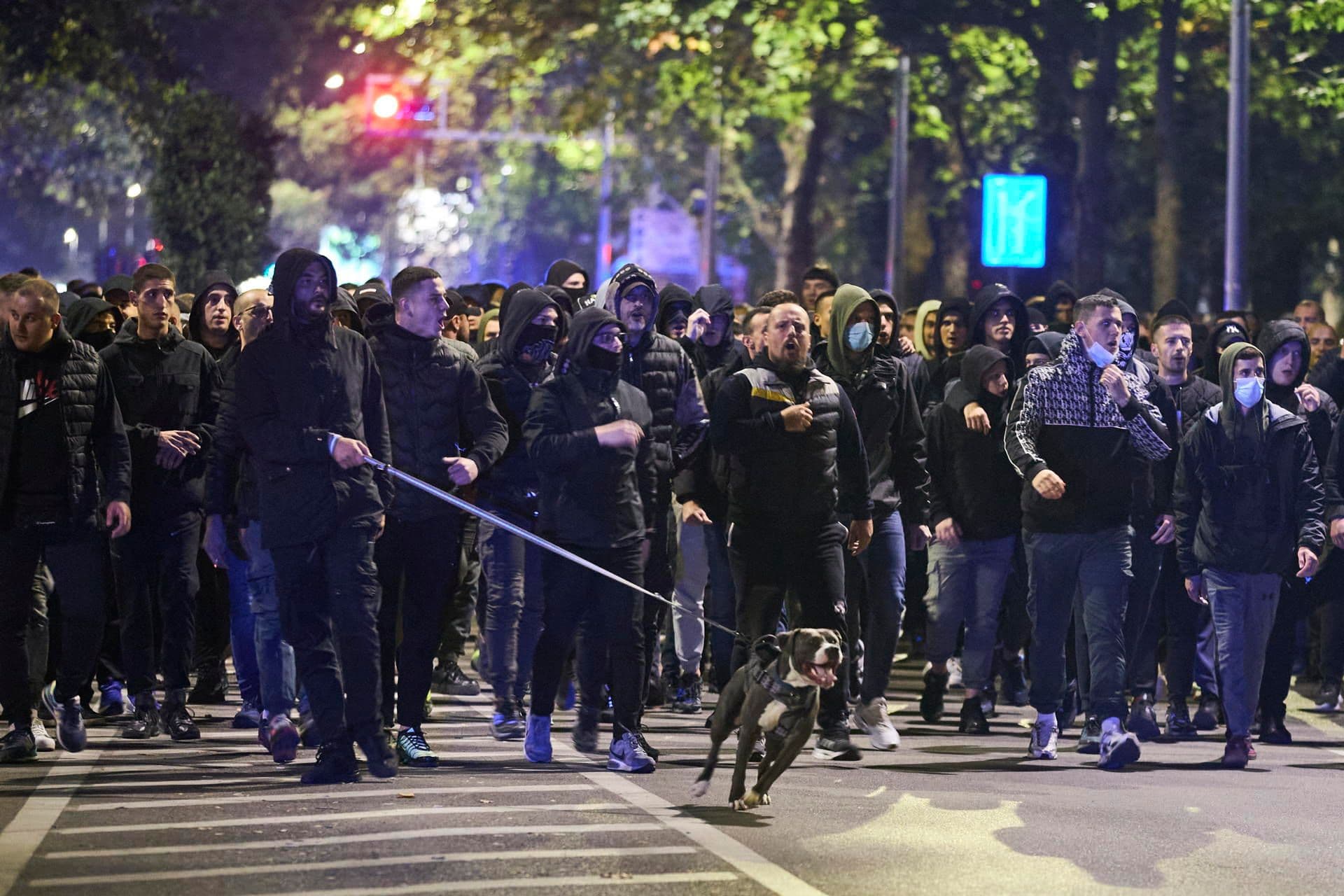A significant event unfolded in Montenegro last week with the arrest of businessman Ranko Ubović, raising concerns about discrimination and xenophobia in the region. The situation escalated as reports of violent attacks against Turkish nationals surfaced, culminating in a troubling atmosphere that highlights deep societal divides.
The arrest of Ubović, along with fellow businessmen Vesko Kovacevic, Aca Mijajlovic, and Vlado Ivanovic, was accompanied by extensive media coverage, showcasing their handcuffed appearances. In stark contrast, the identities of armed assailants involved in the attacks on Turkish citizens were only partially disclosed, with authorities releasing just initials. This discrepancy has led to accusations of double standards in the treatment of individuals based on their social status.
While the police and prosecution uphold the presumption of innocence for those who attacked Turkish citizens, the same courtesy does not seem to extend to prominent Montenegrin businessmen. This selective transparency raises questions about potential biases and the motivations behind the differing levels of scrutiny applied to these cases.
The violence against Turkish individuals, described as reminiscent of tactics used in special warfare, appears to align with broader political agendas. Some analysts speculate that these actions aim to distance Montenegro from the European Union amidst rising nationalist sentiments. The absence of names and images of the attackers further emphasizes a troubling trend of protecting certain individuals from public backlash.
As investigations continue, some speculate that the selective approach taken by authorities may be shielding individuals related to powerful political figures. Prominent businessmen like Ubović face public vilification, while alleged assailants remain largely anonymous. This imbalance underscores systemic issues within the legal framework and law enforcement practices in Montenegro.
The timing of Ubović’s arrest is particularly noteworthy. It coincided with the deadline for bids on a major infrastructure project worth approximately €600 million for the construction of the second section of the Mateševo – Andrijevica highway. Four companies expressed interest, including three from China and one from Turkey. The situation raises suspicions that the arrests were strategically timed to undermine competition, particularly targeting the reputable contractor Bemaks, associated with Ubović and Kovacevic.
Adding to the intrigue, controversial businessman Zvonko Veselinovic, often described as a key figure in Serbian business circles, is reportedly interested in the same project. He has faced allegations of criminal activity in both Kosovo and the United States, which complicates the landscape for the highway construction initiative.
The arrest of Kovacevic, occurring at the Podgorica airport with extensive documentation for the highway project in his possession, further fuels speculation about the motives behind these detentions. Legal experts are questioning whether the actions of prosecutor Miloš Šoškic were indeed influenced by external pressures or were purely procedural.
The political and media frenzy surrounding these arrests, led by figures such as Minister of Interior Danilo Šaranovic and former politician Dritan Abazovic, has created an atmosphere rife with accusations of media lynching. Past experiences with similar high-profile arrests suggest that the legal proceedings may ultimately falter, as public sentiment shifts and the foundations of the charges become increasingly tenuous.
As Montenegro grapples with these developments, the interplay of politics, media, and public perception continues to shape the narrative. The path forward remains uncertain, but the implications for human rights and societal cohesion are profound, raising critical questions about justice and equity in a nation striving for stability amidst turmoil.







